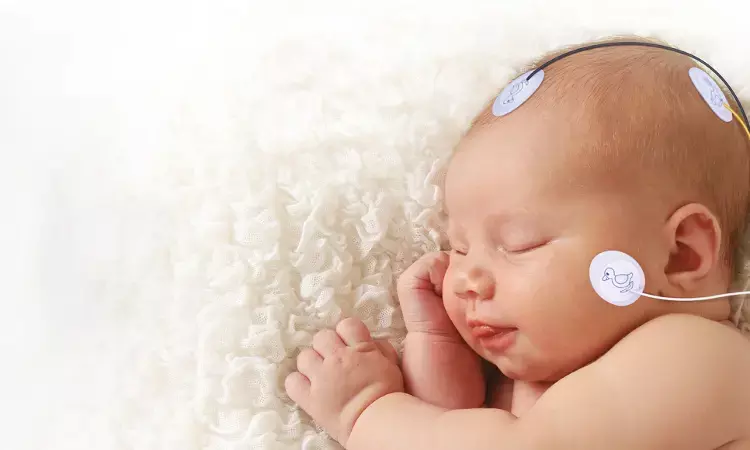- Home
- Medical news & Guidelines
- Anesthesiology
- Cardiology and CTVS
- Critical Care
- Dentistry
- Dermatology
- Diabetes and Endocrinology
- ENT
- Gastroenterology
- Medicine
- Nephrology
- Neurology
- Obstretics-Gynaecology
- Oncology
- Ophthalmology
- Orthopaedics
- Pediatrics-Neonatology
- Psychiatry
- Pulmonology
- Radiology
- Surgery
- Urology
- Laboratory Medicine
- Diet
- Nursing
- Paramedical
- Physiotherapy
- Health news
- Fact Check
- Bone Health Fact Check
- Brain Health Fact Check
- Cancer Related Fact Check
- Child Care Fact Check
- Dental and oral health fact check
- Diabetes and metabolic health fact check
- Diet and Nutrition Fact Check
- Eye and ENT Care Fact Check
- Fitness fact check
- Gut health fact check
- Heart health fact check
- Kidney health fact check
- Medical education fact check
- Men's health fact check
- Respiratory fact check
- Skin and hair care fact check
- Vaccine and Immunization fact check
- Women's health fact check
- AYUSH
- State News
- Andaman and Nicobar Islands
- Andhra Pradesh
- Arunachal Pradesh
- Assam
- Bihar
- Chandigarh
- Chattisgarh
- Dadra and Nagar Haveli
- Daman and Diu
- Delhi
- Goa
- Gujarat
- Haryana
- Himachal Pradesh
- Jammu & Kashmir
- Jharkhand
- Karnataka
- Kerala
- Ladakh
- Lakshadweep
- Madhya Pradesh
- Maharashtra
- Manipur
- Meghalaya
- Mizoram
- Nagaland
- Odisha
- Puducherry
- Punjab
- Rajasthan
- Sikkim
- Tamil Nadu
- Telangana
- Tripura
- Uttar Pradesh
- Uttrakhand
- West Bengal
- Medical Education
- Industry
Combined Treatment of Clinical and Electrographic Seizures With Anticonvulsants Might Not Benefit Neonates

Management of neonatal seizures is complicated by uncertainty surrounding the efficacy and adverse effects of anticonvulsants in neonates. In a recent study, researchers have reported that treating electrographic and clinical seizures with currently used anticonvulsants did not significantly reduce the rate of death or disability at 2 years in a heterogeneous group of neonates with seizures. The study findings were published in the journal JAMA Network Open on December 17, 2021.
Seizures in the newborn occur in approximately 1 per 1000 to 3.5 per 1000 live, full-term births and are a common cause for admission to the neonatal intensive care unit (NICU). Therefore, neuromonitoring with amplitude-integrated EEG (aEEG) or continuous EEG (cEEG) has become the standard of care among tertiary NICUs. Clinicians are generally aware that most neonatal seizures are subclinical and that antiepileptic drugs are relatively ineffective and potentially harm the developing brain.
Bedside amplitude-integrated electroencephalography (aEEG) has facilitated the detection of electrographic seizures. However, an unresolved question in neonatology and neonatal neurology is whether the treatment of subclinical electrographic seizures is beneficial. Therefore, Dr Rod W. Hunt and his team conducted a study to determine if the active management of electrographic and clinical seizures in encephalopathic term or near-term neonates improves survival free of severe disability at 2 years of age compared with only treating clinically detected seizures.
In this randomized clinical study, the researchers included 212 neonates with encephalopathy at 35 weeks gestation or more and younger than 48 hours old and followed up until 2 years of age. They randomly assigned neonates to an electrographic seizure group (ESG, n=86) in which seizures detected on aEEG were treated in addition to clinical seizures or a clinical seizure group (CSG, n=86) in which only seizures detected clinically were treated. The major outcomes assessed were death or severe disability at 2 years or the presence of cerebral palsy, blindness, or deafness. The researchers also assessed the magnetic resonance imaging brain injury score at 5 to 14 days, time to full suck feeds, and individual domain scores on BSID-III at 2 years.
Key findings of the study:
- The researchers observed that ten of 86 (9%) neonates in the ESG and 4 of 86 (4%) in the CSG died before the 2-year assessment.
- Upon analysis, they found that the odds of the primary outcome were not significantly different in the ESG group compared with the CSG group (ESG, 38 of 86 [44%] vs CSG, 27 of 86 [31%]; odds ratio [OR], 1.83).
- They further observed no significant difference in those with HIE (OR, 1.77).
- They even found that neonates who received treatment for electrographic seizures had evidence of worse cognitive outcomes (mean [SD] scores, ESG: 97.4 [17.7] vs CSG: 103.8 [17.3]; mean difference, −6.5).
- However, they noted little evidence of a difference in secondary outcomes, including time to suck feeds, seizure burden, or brain injury score.
The authors concluded, "Treating electrographic and clinical seizures with currently used anticonvulsants did not significantly reduce the rate of death or disability at 2 years in a heterogeneous group of neonates with seizures."
In an accompanying editorial, Dr Martin Offringa and Dr Brian Kalish wrote, "This is the largest study to date comparing 2 current clinical approaches to neonatal seizure management in the NICU…This trial underscores that medical management of critically ill infants should be based on empirical evidence to ensure safe and effective treatment while minimizing untoward adverse effects and complications."
For further information:
Medical Dialogues Bureau consists of a team of passionate medical/scientific writers, led by doctors and healthcare researchers. Our team efforts to bring you updated and timely news about the important happenings of the medical and healthcare sector. Our editorial team can be reached at editorial@medicaldialogues.in.
Dr Kamal Kant Kohli-MBBS, DTCD- a chest specialist with more than 30 years of practice and a flair for writing clinical articles, Dr Kamal Kant Kohli joined Medical Dialogues as a Chief Editor of Medical News. Besides writing articles, as an editor, he proofreads and verifies all the medical content published on Medical Dialogues including those coming from journals, studies,medical conferences,guidelines etc. Email: drkohli@medicaldialogues.in. Contact no. 011-43720751


